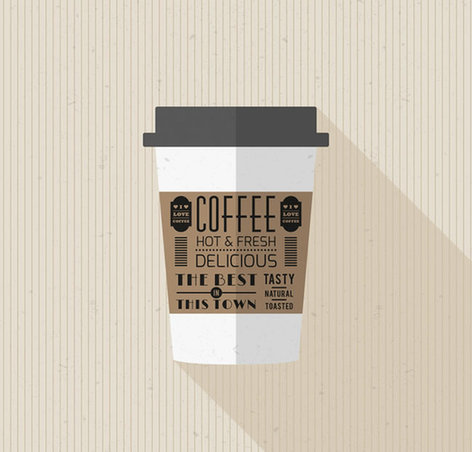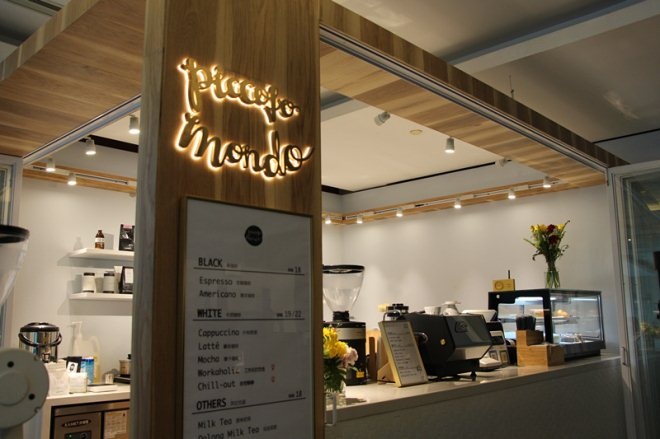How is the business of the coffee delivered to the door?

Working in a tight-paced, competitive office, tiredness often strikes inadvertently. At this time, many white-collar workers want to drink a cup of coffee that suits their taste as soon as possible.
Actually, there are many choices for a cup of coffee. Instant coffee, hanging-ear coffee, capsule coffee maker and the coffee shop near the company, the first three choices are always unsatisfactory in taste, while the latter option is a bit laborious for some "lazy" white-collar workers.
Some people may think that since the delivery platform is so developed now, it is not difficult to order takeout and deliver a cup of coffee.
Indeed, it is not difficult to open the APP of Baidu, Meituan and ele.me, you can see the words of all kinds of coffee purchasing agents, and the process of issuing an order is not much different from that of ordering food. In addition, there are also some platforms that specialize in coffee takeout, providing boutique coffee production and takeout.
So, is this coffee door-to-door business good or not?
Anyway, they survived.
It seems that the fight of O2O has been gone for a long time, and there are few coffee takeout restaurants left in the end.
Let's start with an example of failure.
Mad Cafe, a coffee brand that had hoped to restructure the coffee industry chain with "tens of thousands of partners", posted a tweet on its Wechat service account to bid farewell to its O2O delivery model. Its ideal business model is to serve small and medium-sized cafes as the core. On the one hand, it provides coffee beans and accessories to help offline cafes provide products to consumers; on the other hand, it sells private-brand coffee through Wechat service numbers, which are produced by cooperative small and medium-sized cafes and provide coffee takeout services for C-end consumers. This business model sounds ideal, but it failed miserably in the end. In fact, there are many similar examples, and most of them are lost in official accounts and APP that are no longer updated.
At present, there are two who are doing well, and they are neither defeated by reality nor crushed by the giant takeout platform.
One is still focused on being a Starbucks daigou, and the other is no longer a purchasing agent and sells its own brand.
In 2016, Hangzhou local delivery service provider "black hand delivery" suddenly opened its business from 2 cities to 19, with nearly 150 full-time delivery staff, and is still expanding. Its business logic is very simple, through a sophisticated buying system that allows distributors to use Starbucks cards or other discounts to buy drinks and then send them to consumers at the original price to make a profit. There is even no extra delivery fee and a discount.
The other is called Lian Coffee, which is now better known as Coffee Box. In the early stage, Lian Coffee received investment from Star Venture Capital founded by famous artists such as Li Jing, Na Ying and Jiang Wenli, while round B received an investment of 50 million yuan from Huatze Film and Television. At present, Coffee Box has nearly 50 "coffee workshops" in the core business district of Beijing, Shanghai and Guangzhou, providing boutique coffee to nearby users around each coffee workshop, and has accumulated more than 800,000 users as of April 2016. In fact, even Coffee Box used to do the business of purchasing coffee chain brands, but gradually began to replace Starbucks, Costa and other brands with its own brands, and finally took on a new look, focusing on its own brand Coffee Box coffee takeout, and the social story of coffee became more and more slippery, and it had a good reputation among white-collar workers in Beijing, Shanghai and Guangzhou.
Those who survive may be heroes, but the road ahead is not always smooth.
The dilemma still exists.
In fact, the biggest enemy of the takeout platform in this subdivision is nothing more than those large and complete takeout platform giants. As we all know, those big platforms are no longer satisfied with delivering meals, coffee, breakfast, afternoon tea, flowers, medicine, snacks. All hope to achieve "an App in hand, everything".
"it's convenient and not troublesome. An APP can solve the problem, so why pay more attention to a few official accounts that specialize in coffee takeout?" This is the voice of lazy people, and it is also one of the dilemmas of coffee takeout platforms.
For even coffee, after the transformation, from a simple takeout platform to a takeaway merchant, brand identity has become a new problem for even coffee (Coffee Box). Analysts pointed out that for coffee delivery platforms, customers' loyalty to them is not high, and coffee purchasing agents unanimously choose to cooperate with Starbucks and COSTA, mainly because of users' loyalty to these coffee chain brands, if the self-built brand can not completely guarantee that someone will buy it.
Recently, it has been reported that Starbucks China will complete the takeout construction within fiscal year 2017, and the delivery time is required to be delivered within 20 minutes. Now it has sold an olive branch to Baidu takeout. Although Starbucks responded that there is currently no formal business cooperation with any third-party delivery service platform in China. However, industry insiders believe that Starbucks is very likely to carry out takeout business in China. "if Starbucks carries out takeout business, more than 2000 Starbucks stores in China will assume the role of takeout sites. It will bring Starbucks a considerable increase in orders."
Can a start-up brand like Coffee Box withstand the strength of the cooperation between Starbucks and Baidu?
After Starbucks has an officially authorized takeout platform, if it chases and intercepts the "irregular army", that is, purchasing agents, and even forbids them to use preferential measures such as Starbucks cards, can they still laugh at "black card delivery"?
At present, even coffee only covers some popular business districts in Beijing, Shanghai and Guangzhou, while there are only 19 cities covered by "black hand delivery". Under this small and beautiful scale, word-of-mouth is good, but once the scale expands, the problems on the distribution side will be revealed immediately. Whether to build a self-built distribution team or cooperate with a third-party platform will become a difficult problem for these small coffee delivery platforms.
Industry insiders said: "at present, almost all coffee distribution platforms are facing two major pain points: thin profits on the commodity side and too heavy on the distribution side." Only some platforms with financial advantages can barely survive, but they are not likely to last. Once the giant starts to cut in, it is difficult for the subdivision platform to survive. "
So the crux of the problem may be, how to compete with giants?
Important Notice :
前街咖啡 FrontStreet Coffee has moved to new addredd:
FrontStreet Coffee Address: 315,Donghua East Road,GuangZhou
Tel:020 38364473
- Prev

After the strong premium ability, the high-priced "small but beautiful" coffee market is still very large.
On March 22, Piccolo Mondo, a self-created coffee brand, held an offline sharing meeting with the theme of Melbourne Coffee Tour in Hangzhou Dunan Development Building. It is reported that this is the store since the beginning of this month since the trial operation of the second offline activity. We want to popularize coffee culture through this platform. Piccolo Mondo related person in charge of Mr. Ma told "Lianshang. com" that at present, Chinese people are interested in coffee
- Next

Grand opening of Shangruichun Coffee flagship store in Qingdao
Shang Ruichun Coffee, the first independent coffee chain brand in China, opened its flagship store in Qingdao. Shang Ruichun Coffee, a coffee chain under Kai Tak Holdings Group, is the first independent coffee chain brand in China to adopt the consumer partner model. The brand was established on March 9, 2016 to create a Chinese independent coffee brand and let the world have a taste of China! Brand concept of
Related
- Can I make coffee a second time in an Italian hand-brewed mocha pot? Why can't coffee be brewed several times like tea leaves?
- Hand-brewed coffee flows with a knife and a tornado. How to brew it? What is the proportion of grinding water and water temperature divided into?
- What is the difference between Indonesian Sumatra Mantinin coffee and gold Mantinin? How to distinguish between real and fake golden Mantelin coffee?
- What does bypass mean in coffee? Why can hand-brewed coffee and water make it better?
- Unexpected! Ruixing Telunsu lattes use a smoothie machine to foam milk?!
- % Arabia's first store in Henan opens into the village?! Netizen: Thought it was P's
- Does an authentic standard mocha coffee recipe use chocolate sauce or powder? Mocha Latte/Dirty Coffee/Salty Mocha Coffee Recipe Share!
- What is the difference between Vietnam egg coffee and Norway egg coffee? Hand-brewed single product coffee filter paper filter cloth filter flat solution!
- What is the difference between sun-cured and honey-treated coffee? What are the differences in the flavor characteristics of sun-honey coffee?
- How to make Italian latte! How much milk does a standard latte use/what should the ratio of coffee to milk be?

